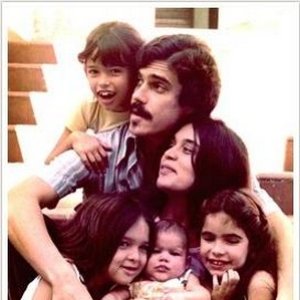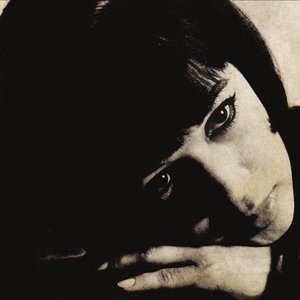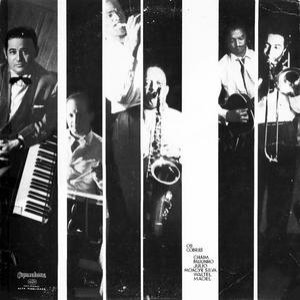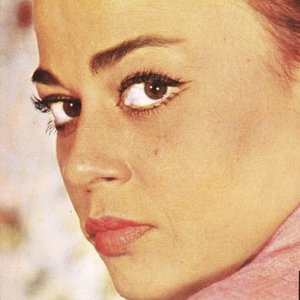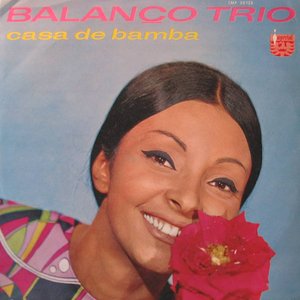Biography
Norma Benguell (born Norma Aparecida Almeida Pinto Guimarães d'Áurea Bengell, 21 February 1935 Rio de Janeiro, Brazil – 9 October 2013 Rio de Janeiro at age 78) was a Brazilian film, stage and television actress, producer, singer-songwriter, screenwriter and director.
Considered one of the greatest muses of Brazilian cinema and theater in the 1950s, 1960s and 1970s, Norma began her career in the early 1950s, being launched in the artistic environment through the revue theater by producer Carlos Machado. She shot 64 films during her career, several of them in Europe. She also appeared in episodes of T.H.E. Cat, TV Series (1966-1967) the first being in 1966 episode “To Kill a Priest”.
Biography
Bengell was born in Rio de Janeiro, Brazil in 1935. She was the daughter of Christian Friedrich Bengel, a Belgian-born German piano tuner, and Maria da Glória Guimarães, a wealthy young Brazilian woman from the Zona Sul (South Zone) of Rio de Janeiro.
Norma lived from childhood until the mid-1960s in an apartment on Nossa Senhora de Copacabana Avenue, Copacabana neighborhood in Rio. She began her studies at Marechal Trompowsky Municipal School. Around the age of 10, her parents separated. Due to her rebellious nature, her paternal grandmother enrolled her in the boarding school of German nuns Nossa Senhora de Piedade, from where she was later invited to withdraw due to acts of indiscipline.
Career
In the early 1950s, Norma began her career as a model and mannequin for Casa Canada and Casa Imperial. Her beauty drew attention and in 1954 she started to act in the revue theater with the show Fantasia e Fantasias, by Caribé da Rocha - where she developed her singing career.
Bengell was already the main star of Carlos Machado's shows and had already established herself as a singer when she made her film debut by starring in a caricature of Brigitte Bardot in the film “O Homem do Sputnik” (1959), by director Carlos Manga. In the same year, she recorded her first LP, called Ooooooh! Norm.
During the 1960s, Bengell was successful in the music scene, singing in concerts by Antônio Carlos Jobim, João Gilberto, Vinicius de Moraes and Roberto Menescal, as well as being one of the first singers to record Jobim's original compositions.
On television, she appeared on a weekly show about MPB, directed by Abelardo Figueiredo on TV Tupi. She also participated in the shows Carrossel and Noite de Gala on TV Rio.
The feature film that enshrined Bengell in Brazil was “Os Cafajestes” (1962), by director Ruy Guerra, in which she starred in the first frontal nude scene in Brazilian cinema, which made her the target of great persecution by conservative sectors, suffering attacks from the church and the organization Tradição, Família e Produção (TFP). (Tradition, Family and Production).
In 1961, Bengell debuted in dramatic theater with “Busca-se uma Rosa”, in the act written by Gláucio Gil. In the same year, she was invited by Anselmo Duarte to play the prostitute Marli in O “Pagador de Promessas” (1962). By participating in the Cannes Film Festival, which awarded the film, she achieved international recognition. She is introduced to Dino de Laurentiis and begins her international career acting in “O Mafioso” (1962), by Alberto Lattuada. Between 1962 and 1970, she acted in thirteen foreign productions.
In Italy, Bengell met actor Gabriele Tinti, who became her husband, when they got married in a scenic church at the Vera Cruz studios during the filming of Empty Night (1964), by Walter Hugo Khoury.
In 1969, the year in which she staged the play Cordélia Brasil, by Antônio Bivar, in São Paulo, Bengell was kidnapped at Teatro de Arena and taken to Rio by three men from the 1st Police Battalion of the Army. At DOI-CODI (a department of the military dictatorship known for torturing artists, writers and political enemies of the regime), she was interrogated for five hours about "subversion in the theater class" and detained for two days. It would be the first of several arrests by the military regime, which led to her exile in France in 1971. Four decades later, she was recognized by the Brazilian government as politically amnesty and entitled to compensation.
In avant-garde theater, Bengell mounted the play Os Convalescentes (1970), directed by Gilda Grillo. In France, she acted at the Théatre National Populaire. Still in the 1970s, she participated in important Brazilian films, such as Os Deuses e os Mortos (1970), by Ruy Guerra, A Casa Assassinada (1971), by Paulo César Saraceni, Mar de rosas (1977), by Ana Carolina and A Idade da Terra (1980), by Glauber Rocha.
Her second LP, “Norma Canta Mulheres”, came out in 1977, with compositions by Dona Ivone Lara, Luli and Lucina, Marlui Miranda, Dolores Duran, Chiquinha Gonzaga, Rosinha de Valença, Sueli Costa, Rita Lee, Joyce and Maysa, in addition to the original composition “Em nome do amor”, a partnership between Bengell and Glória Gadelha. The following year, she became involved in the fight for the regulation of the acting profession in Brazil. In the 1980s, Bengell participated in soap operas on TV Bandeirantes and Rede Globo. In 1983, she returned to France and acted in the play Les Paravents, by Patrice Chéreau.
With the creation of N.B. Productions, Bengell launched herself into cinematographic production and direction, directing the short films Maria Gladys, a Brazilian actress (1980),Barco de Iansã (1980) and Maria da Penha (1980). In 1988, she debuted as a feature film director with the film Eternamente Pagu (1988), about the life of political activist Patrícia Galvão. She also produced and directed O Guarani (1996), an adaptation of José de Alencar's literary classic. Unlike her previous feature film, the film was heavily criticized and did not obtain significant box office, in addition to causing financial issues. Her next cinematographic productions were the short films O Rio by Machado de Assis, Mulheres no Cinema Brasileiro (2000), Maria Lenk (2004), and Trilogia das Pianistas (2005). In theater, she participated in the plays O Relato Ín Great Madame Shakespeare (2007), Gown (2007) and Happy Days (2010). At Rede Globo, she was part of the cast of the humorous program Toma Lá Dá Cá between 2008 and 2009.
Personal Life
Bengell's first and only marriage was to Italian actor Gabriele Tinti. They met in 1963 and in 1964 they decided to live together. The union lasted until 1969, as the artist did not want to subject herself to a conservative marriage. After their separation, Bengell moved out to live by herself. She declared herself a feminist, starting to fight in demonstrations and unions for women's rights, defending women's rights to work, get divorced, have an abortion if so desired, and the right to use the pill and condoms, breaking with the society of her time.
She was also viewed as a political figure, taking part in demonstrations against the Brazilian military dictatorship in 1968 along other artists.
Death
Bengell died on October 9, 2013 from lung cancer, a diagnosis she had received six months earlier. She was hospitalized at Hospital Rio Laranjeiras due to worsening shortness of breath. Her body was laid to rest on the same day at São João Batista Cemetery and cremated on October 10 at Caju Cemetery. The artist had been living alone in her apartment in Copacabana for a long time, and in recent years she was being cared for by an elderly caregiver, as she had back problems and used a wheelchair.
Films
Link: https://pt.m.wikipedia.org/wiki/Norma_Bengell - “Filmografia”
Discography
195?: A Lua De Mel Na Lua - E Se Tens Coração - (Capitol/Odeon 78)
195?: Hô-Bá-Lá-Lá - 7” Vinyl EP
1959” Ooooooh! Norma (Odeon EP)
1959: Ooooooh! Norma - (Capitol/Odeon LP)
1962: ianni Ferrio E La Sua Orchestra, João Gilberto, Norma Bengell – Copacabana Palace
(7", 45 RPM, EP) (Alvorada EP)
1963: Tristeza (Derby 7” EP)
1965: Meia Noite Em Copacabana (Elenco LP)
1967: Canto de Ossanha / Água de Beber (Elenco EP)
1977: Norma Canta Mulheres - (Phonogram LP)
1999: Groovy Vol. 4 (A Collection Of Rare Jazzy Club Tracks) - Track (B3): “Fever” (Sony Music CD)
- Per Discogs, Norma was featured as a singer in 51 additional albums: https://www.discogs.com/artist/3926076-Norma-Bengell
Sources
https://www.discogs.com/artist/3926076-Norma-Bengell
https://pt.m.wikipedia.org/wiki/Norma_Bengell
https://en.m.wikipedia.org/wiki/Norma_Bengell
https://www.imdb.com/title/tt0060030/?ref_=ttep_ep_tt
Artist descriptions on Last.fm are editable by everyone. Feel free to contribute!
All user-contributed text on this page is available under the Creative Commons Attribution-ShareAlike License; additional terms may apply.
